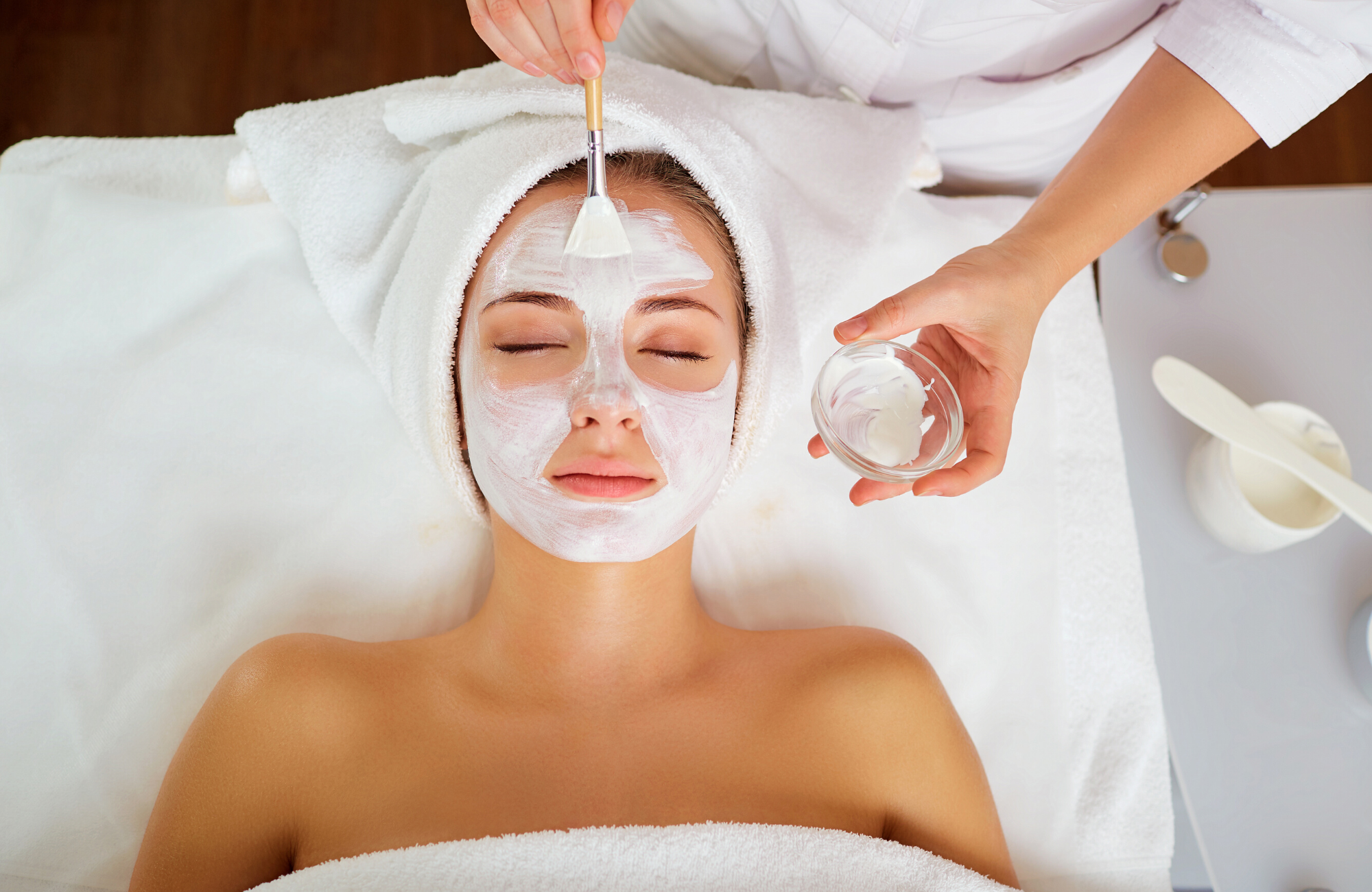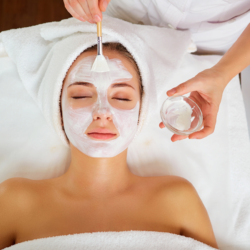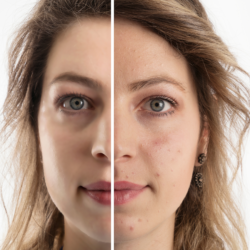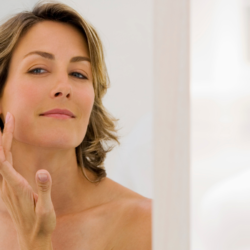Is your skin often shiny? Does your makeup “sweat” off your face very easily and quickly? Are you annoyed by the frequently appearing pimples and blackheads attacking your skin? Unfortunately, you have an oily skin complexion and your current skin care routine is not effectively combating over-active sebaceous (oil) glands. Sebaceous glands produce sebum, an oily, waxy substance produced by your body’s sebaceous glands. Too much sebum produces shiny skin that looks greasy later in the day and clogged, enlarged pores.
There are many causes for oily skin, but estheticians are pretty sure you may be using some cosmetic products which have certain ingredients that may cause this or inhibit oil removal. Here is a list with the 13 ingredients estheticians want you to avoid if you have oily skin.
- Almond Oil. Yes, it is all natural, but this oil can clog your pores when used on the face. However, almond oil is highly recommended as a natural ingredient in body moisturizers due to the extra hydration it provides. Avoid its use on your face or other parts of your body that are common for oily skin, like shoulders, neck, and back.
- Algae Extract. This element can be found in some concealers. It is very irritating when applied to the skin and will surely clog up your pores.
- Acetylated Lanolin. Produced by sheepskin for maintaining smooth and soft wool, this natural element has the exact function of our sebum. Used in skin care products to achieve softness and moisturization, it produces more oiliness in your skin. Is also called acetylated lanolin alcohol, PEG 16 lanolin, etc.
- Isopropyl Palmitate. This is a usual ingredient in several tinted moisturizers and many of these will try to fool you by describing the product as a non-oily skin or non-pimple producer. This product has been known to cause acne, blackheads, whiteheads and clogged pores if overused.
- Ethylhexyl Palmitate. Just as Isopropyl Palmitate, this is a fatty acid which can clog easily your pores, producing areas of irritation.
- D & C Red. These letters are followed by a number and is simply a color added to cosmetics for tint purposes, usually found in blush, which may explain the predominance of cosmetic acne in the cheekbone area. These color additives have the tendency to produce high levels of oily skin and pimples. Avoid products with these ingredients for oily skin control.
- Benzaldehyde. This ingredient is used in many cosmetic and skin care products as an added fragrance that gives a nice scent. Similar to other artificial fragrance enhancers, you will want to avoid this chemical due to its ability to clog pores and irritate your skin.
- Lauric Acid. This ingredient is very common in many well-known cosmetics and skin care products. It is also found in high abundance in coconut oil, which has skin moisturizing benefits. However, coconut oil is considered a 4 on the comedogenicity scale (this measures how pore-clogging an ingredient is, rated 0-5 with 5 being the most pore-clogging). When you see this ingredient listed, it is recommended to try a skin patch test first, as it may not be the best ingredient for acne treatment.
- Lauroyl Lysine. This ingredient is found in several loose powders, preventing the skin from breathing through the pores, resulting in congested, enlarged pores.
- Sodium Chloride. This is just the chemical name for salt and is an element in many cosmetics such as cleansing gels. This agent, as many believe, does not have exfoliating properties, but has the opposite effect of clogging your pores.
- Stearic Acid. Not as harmful as other elements on this list, but it can still clog your pores. So, if you have oily skin by nature, try to avoid products with this ingredient.
- Wheat Germ Oil. When consumed it can be very beneficial for your body, but on your face, it can provoke irritations, so stay away from it.
- Shea Butter. This element provides wonderful moisturizing effects on your body, but do not apply it to your face due to its ability to clog your pores.
Keep in mind that many of these ingredients are found in the formulations of several cosmetic or skin care products in the market. If you have oily skin, try to avoid them and use other products, especially natural plant-based products, for oily skin control. Explore our Oily Skin Control Face Wash, Toner and Moisturizer products.
Read More Blogs






